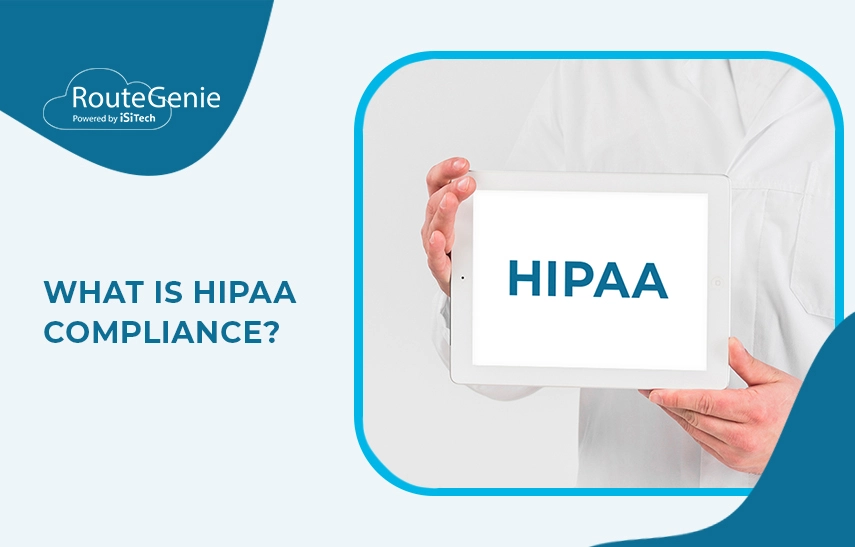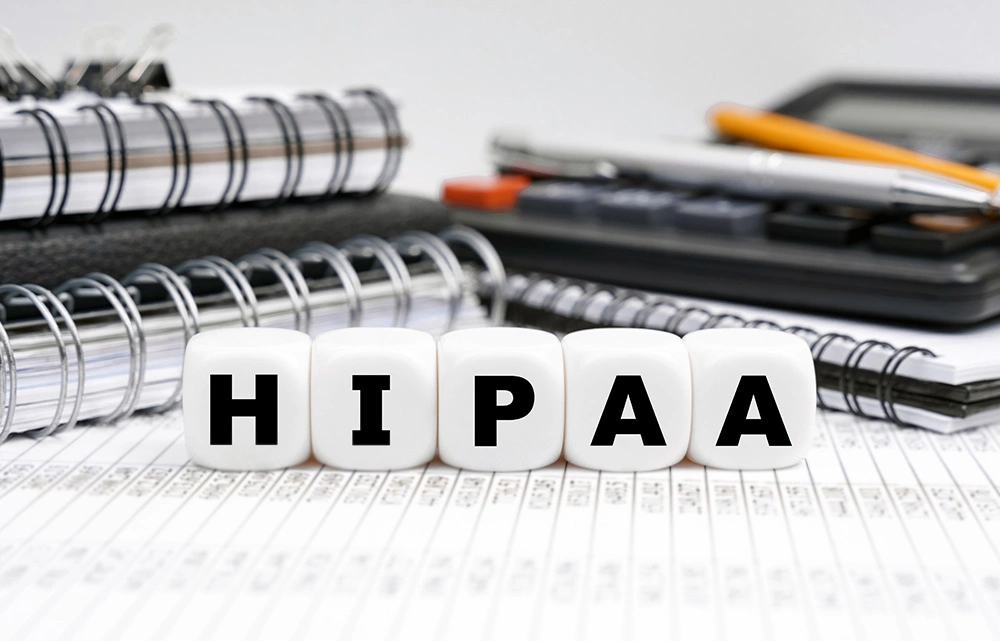What is HIPAA Compliance?

HIPAA compliance is a critical element of all health organizations’ security measures. Any trustworthy company has measures to ensure that all conditions are met.
But what about tangential entities like the non-medical emergency transport (NEMT) industry? Do they need to be HIPAA compliant as well?
2023 will be a big year for NEMT companies. HIPAA compliance will become even more critical as the industry expands.
Contents:
- Why is HIPAA Compliance Important?
- Who Needs HIPAA Compliance?
- What Is HIPAA Compliance Software?
- Who Needs a HIPAA Compliance Officer?
- How to Become a HIPAA Compliance Officer
- What are the Benefits of HIPAA Compliance?
- Are You HIPAA-Compliant?
Why is HIPAA Compliance Important?
HIPAA compliance is a basic requirement for healthcare companies. It ensures all patient data remains secure and confidential. Health information is safe no matter how many parties gain access to it for diagnosis, treatment, billing, and even transport.
It defines how health providers and other companies use and store patient data. It dictates who can access such records. It sets safeguards for healthcare providers to protect patient privacy. To remain compliant, healthcare providers must follow all applicable federal, state, and local laws related to privacy and security.
HIPAA has many requirements that apply to different organizations. They have guidelines for medical facilities (hospitals) and practices (individual physicians). It also has rules that apply to medical transport providers.
It’s not just about protecting patients’ privacy and safeguarding their information. HIPAA compliance protects businesses from sanctions. It builds trust with patients and improves cooperation among various entities. It also helps patients maintain accurate expectations when they receive healthcare services. Healthcare providers can then avoid problems that could arise from misinformation or misunderstandings.
For medical transport providers, compliance can lead to more profits, passengers, and business partners. Businesses can attract more potential customers because of high-quality services and privacy.
HIPAA compliance also allows healthcare organizations to use technology more effectively. When patient privacy and security are taken care of, other advanced tech features are easier to integrate. Software streamlines operations across the entire industry. This leads to improved patient care and better health outcomes.
Who Needs HIPAA Compliance?
Any covered entity with access to patient information should comply with HIPAA regulations. Their business associates are under the HIPAA umbrella as well. Organizations that provide treatment, billing, or other healthcare services must comply.
The covered entity could be an organization or an individual involved in any of the following:
Health Plans
- Health insurance companies
- Health maintenance organizations (HMOs)
- Health plans sponsored by employers
- Medicare and Medicaid
Clearinghouses
These organizations process non-standard health information on behalf of other organizations.
Providers
Providers include those who are involved with patient health information transactions or claims. They include the following:
- Healthcare facilities (clinics)
- Doctors
- Psychologists
- Dentists
- Pharmacies
- Nursing homes
- Chiropractors
Business Associates
These entities help providers carry out their healthcare services. Often they have a contract or arrangement with the provider, such as:
- Administrators for claims processing
- Hospital consultants
- Independent medical transcriptionists
- Medical billing companies
- Non-emergency medical transport (NEMT) providers
- Non-emergency medical transport software providers
HIPAA compliance is a must-have in the NEMT industry. Transport companies use electronic medical records. They are responsible for maintaining data privacy. They must have security measures to avoid sanctions.
Using HIPAA-compliant software makes this much easier.
What Is HIPAA Compliance Software?

Any app or software used for healthcare services should meet HIPAA compliance. It includes all the necessary security and privacy safeguards as outlined by HIPAA.
These software programs include NEMT software programs. Transport companies that use HIPAA-compliant software ensure patient data is safe on all levels.
Software companies specifically designed NEMT software for managing HIPAA compliance. They help transport providers meet these security requirements. They also complete other permits and licenses for operation.
HIPAA compliance is an integral part of any organization’s strategy for data protection. It’s not just a matter of protecting your clients’ health information. You are also maintaining business privacy and adhering to important safety regulations.
HIPAA-compliant NEMT software provides security for all your business data. The software should have all the necessary security features so that only authorized users have access. Different levels of access may be required.
The benefits of using NEMT software compliant with HIPAA include the following:
- Limited access rights for users
- Users have complete control over their accounts
- Integrated security measures within the software
NEMT software like RouteGenie meets all HIPAA compliance regulations. It also helps transport companies become more profitable and streamlines operations. It lessens the likelihood of no-shows and improves the performance of any fleet. Efficient routing ensures all drivers can bring their passengers to their appointments on time.
RouteGenie’s app helps drivers and passengers, too. Patients can schedule trips with the most efficient route and schedule. This saves time, money, and fuel for every trip. For multiloading trips, all passengers still have the security and privacy they need.
RouteGenie will integrate with your brokers. It ensures your company follows relevant regulations. You can keep operating costs low, and your business will still run efficiently.
Who Needs a HIPAA Compliance Officer?
All healthcare organizations or business associates should have a HIPAA compliance officer. The position can be given to a current employee. Most organizations onboard a new hire for this specific role.
The compliance officer is in charge of ensuring all privacy policies are enforced. The officer is tasked with the following:
- Overseeing the training of employees
- Checking risk assessments for the business
- Developing HIPAA-compliant programs and procedures if needed
Here are some of the duties and responsibilities of a HIPAA compliance officer:
- Must have a thorough knowledge of HIPAA Privacy and Security Rules
- Must come up with solutions to develop compliance programs
- Documents an organization’s progress in implementing HIPAA compliance programs
- Develop employee training programs to impart what HIPAA compliance requires
- Emphasize how compliance affects employees’ duties and responsibilities
- Monitor new or emerging guidelines in the state’s regulatory requirements
A compliance officer can oversee the following to ensure all regulations are met:
- Ensure each employee has a copy of the privacy policy, which has information about how the company handles patient data
- Ensure that employees know about their HIPAA-related responsibilities
- Make sure all software used by transport companies is HIPAA-compliant
How to Become a HIPAA Compliance Officer
HIPAA compliance officers have certain qualifications, including:
- Related degree in the healthcare field (health information technology, healthcare administration, medical coding)
- Proven knowledge of HIPAA privacy guidelines and regulations
Most companies require a bachelor’s degree for such regulatory officers. They also require the applicant to prove familiarity and firsthand experience with HIPAA.
The position does not require specific licenses or certifications. Some providers offer HIPAA compliance training but check the course to see if it is relevant to your role and covers all guidelines.
Some companies look for applicants with interpersonal communication and training skills. This is especially important for companies that handle claims and billing.
What are the Benefits of HIPAA Compliance?

HIPAA compliance is crucial for all healthcare organizations. It significantly improves the security of their systems. And patient privacy leads to many benefits for NEMT companies, such as more profits and passengers.
HIPAA compliance benefits transportation providers in the following ways:
Send Patient Health Information (PHI) Between Companies
Transport companies can reassure their passengers that their health information will remain secure. Only healthcare companies related to their treatment and billing can access their data.
Companies can gain more passengers because of the trust they build. When patients are confident in a company, they are more likely to recommend its services to others.
Develop Partnerships With Healthcare Facilities and Other Business Associates
HIPAA-compliant transport providers benefit from productive partnerships, too. Healthcare companies and business associates require compliance from their transport partners. This can further expand their client list, increasing their revenue and growing their business.
A Step up From the Competition
Maintaining compliance differentiates your business from your competitors. It gives passengers and clients an extra layer of security. Such security measures ensure their trust and loyalty.
Increases Business Profits
You retain more patients, business associates, and clients when your transport company is HIPAA-compliant. It builds trust and goodwill on all levels, which ensures consistent revenue.
Are You HIPAA-Compliant?
Ensuring your NEMT transport service is HIPAA compliant can help win clients. It could also increase your profits and gain customers’ trust.
If you are using NEMT software like RouteGenie, you make passengers feel secure when they opt for your services. They know their information is safe with you. They also trust that your service follows all regulations.
Book a demo today if you want to know more about RouteGenie and how it can help your transport business meet HIPAA guidelines. RouteGenie also assists with billing, trip scheduling, and much more. Most of all, it’s an NEMT solution that can help you transform your transport business into a success!
HIPAA Compliance FAQ
What does "HIPAA compliant" mean?
"HIPAA compliant" means a business follows the federal standards of the Health Insurance Portability and Accountability Act of 1996 to protect the privacy and security of sensitive patient health information. In short, it means the provider has the required technical, physical, and administrative safeguards in place to keep patient data confidential and secure.
How to be HIPAA compliant?
To be HIPAA compliant, an organization must protect patient health information by limiting access to authorized staff, using secure systems for data storage and transmission, training employees on privacy practices, and following required safeguards for handling, sharing, and documenting protected health information. The use of advanced medical transportation software like RouteGenie is also an advantage to be HIPAA compliant.
What is HIPAA Certification?
HIPAA certification refers to completing approved HIPAA training and passing a test that confirms understanding of HIPAA compliance requirements. It is typically done annually, and successful completion results in a HIPAA compliance certificate, but it is not an official government-issued certification.
Who needs HIPAA certification?
Anyone who creates, accesses, transmits, or stores protected health information (PHI) needs HIPAA certification, including healthcare staff, administrative teams, billing and IT personnel, and business associates.
About the author
An experienced content writer, Keren Dinkin’s forte is writing well-informed medical transportation, healthcare accounting, and related articles. Her work is backed by months of intensive research and pays meticulous attention to details. In addition to being a writer, she also dons the hat of a content strategist.